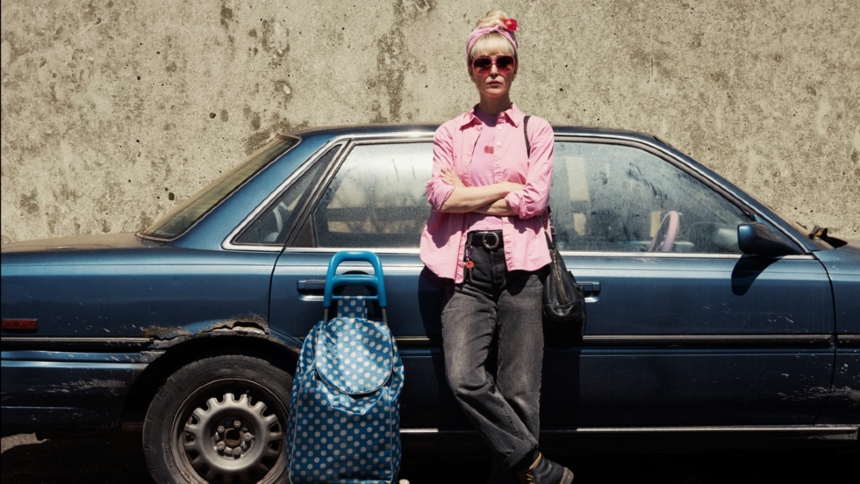Tribeca 2025 Review: TOW, Rose Byrne Shines in True Story Dramedy, As One Woman Battles Against the System
Rose Byrne, Octavia Spencer, Dominic Sessa, Ariana DeBose, Demi Lovato, and Simon Rex star in Stephanie Laing's drama.

In the 2011 film, Bridesmaids, Rose Byrne played Helen, a confident socialite, who, for a while, became the nemesis of Kristen Wiig’s Annie Walker, a barely employed woman who had lost her business and was always on the visible verge of a nervous breakdown. In Stephanie Laing’s film Tow, which had its premiere at the 2025 Tribeca Festival, Byrne, who plays the movie’s protagonist, Amanda, seems to be channeling Annie’s manic energy, rooted in anxiety and desperation.
Much like the film version of another famous woman who successfully fought the injustice of the world –- Erin Brockovich -- Tow starts with a disastrous job interview, clearly not the first one Byrne’s Amanda has to go through. Unlike Erin Brockovich, Amanda is even more down on her luck, having to resort to living in and out of her car, a 1991 Toyota Camry. The woman doesn’t let her estranged young daughter know what’s going on, merrily texting and video chatting with her from cafes and park benches.
After another job interview with a dog grooming salon, where Amanda does get a job where she needs to pick up the pets in her car, she realizes that the said car was stolen, leaving her once again jobless and entirely homeless. The Camry soon turns up, as it was abandoned and then towed, but Amanda’s joy is short-lived when she finds out she can’t just get it back: she needs to pay a fine that is exorbitant for her in the current situation. Thus begins the heroine’s odyssey and her uphill battle against the bureaucratic Goliath.
Cinematic references aside, Amanda Ogle is a very real person, whom we see at the end of the movie. The story of her struggle against the inherent system's injustice is also true, and even fictionalized for the movie, it comes off as powerfully rooted in familiar reality, which becomes the film’s core strength. The intonation, which the screenplay by Jonathan Keasey, Brant Boivin and Annie Weisman, and Stephanie Laing's direction sets upon, also allows Tow to surpass most of the usual genre cliches that a lot of stories based on personal accounts tend to navigate to.
For one, Tow is very conscious about not being overly sentimental or in any way ostentatious. Like in real life, the desperation here is quiet and understated. At times, it’s embodied by nothing but some small telling details, like the heartbreaking pink bow Amanda wears on her head or some micro changes on the face of Rose Byrne, who is always a treasure and is obviously incredible here. The heroine’s tragic backstory, which would inevitably become the source of great drama in some other film, is also implied but is never fully explored here, beyond a brief episode that happens near the end of the film, where Amanda shares for the first time during an AA meeting.
The other thing Stephanie Laing’s film avoids is a full-bodied social drama. While the powerful towing company is personalized by brief appearances of their cynical lawyer (Corbin Bernsen), satirizing the evil corporations isn’t what the authors are interested in.
Tow is, first and foremost, a human story, both simple and complex – once again, just like it usually is in life. The choice to avoid trivialisms, both narratively and aesthetically, parallels the general statement the authors seem to be making here regarding the dangers of stereotyping human experiences.
Throughout the whole film, there is a recurrent theme of various people using the words “people like you” while addressing Amanda. Sometimes it’s a compliment. Sometimes it’s about trying to find a way to politely describe her situation and living arrangements.
In any case, it’s the same impersonal generalization that Byrne’s heroine ends up revolting against – even with the very best of intentions, it’s still a product of the system that tends to see the surface, not the human lives underneath.
The film enjoys its world premiere at Tribeca Festival 2025. Visit its official page for more information.







